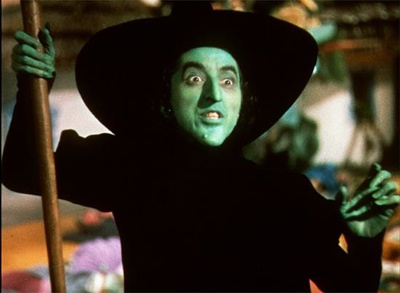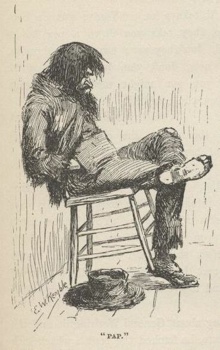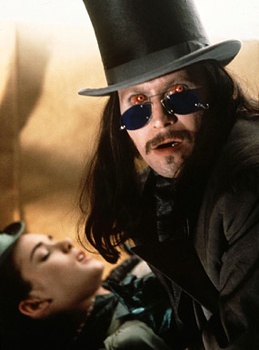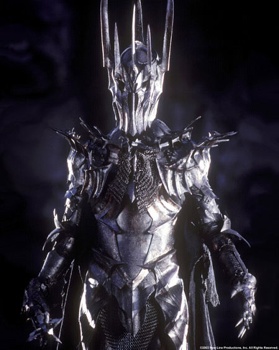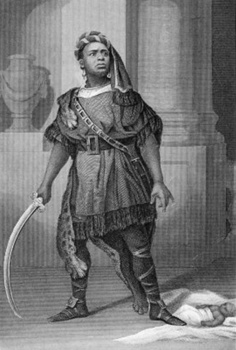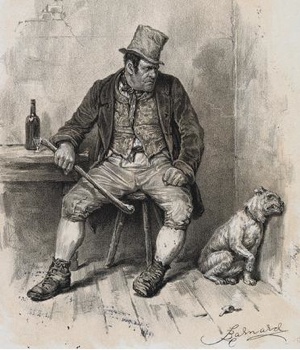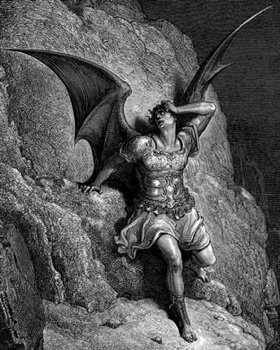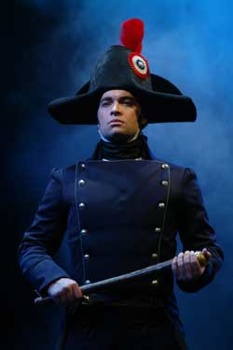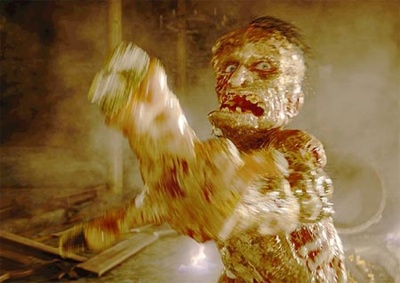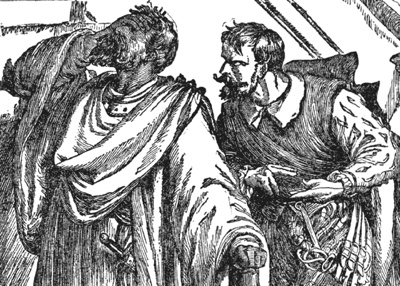She covets. That is her nature. She wants Dorothy’s silver slippers. The Wizard himself believes that the Witch’s magic is more powerful and could kill him in an instant if he goes near her. The Wizard finally offers Dorothy a trip home if she will kill the Witch. That’s how loathsome she is to the embodiment of good in Oz. The Witch actively tries to kill Dorothy and company several times, with wolves, bees, the winged monkeys, crows. She captures the Cowardly Lion and tries to starve him to death. She tries to burn the Scarecrow to death. All to force Dorothy to give up the slippers. She steals one of Dorothy’s slippers, by tripping her over an invisible bar. Dorothy finally has enough and throws a bucket of water on her. Why does it kill her? Because water is pure. The Witch is thorough corruption in all respects, and thus the embodiment of impurity.
No wonder Huck Finn doesn’t really care for religion. Why should he honor his father, if his father is a drunken child beater? When he first appears, he is pasty white, sweaty, filthy, stinks, and repeatedly threatens to beat Huck to death if he doesn’t stop trying to be civil for Miss Watson. He is probably the only character in the story that Huck really hates, but Huck is also scared to death of him, and reluctantly obeys him as much as he has to. Pap kidnaps Huck and forces him to live with him, tries to sue the local judge for the money Huck found at the end of “Tom Sawyer,” on the pretense that Huck is Pap’s property, because Pap made him, and thus the money belongs to Pap, and was never Huck’s to give away. Huck finally just escapes from him out of terror and loathing. Jim finds Pap dead later, and doesn’t tell Huck until the end. No one sheds a tear.
Forget all that sexual stuff you see in the movies. Dracula vants one thing: blood. He requires the blood of humans to survive, and has no qualms at all about killing everyone in the whole vorld, vone neck bite at a time, to keep his thirst quenched. The interesting about Dacula is that he kills vone person at a time, and yet manages to vipe out the entire crew of a Russian cargo ship bound to England. He does this in the form of a volf, because as a volf, he is supremely savage, ripping people to pieces and lapping their blood off the ground. His motive for traveling to England is simply that he currently lives in a remote area of Transylvania, and there aren’t a lot of people to suck dry. England has “teeming millions,” as he puts it. The main characters of the book start to get in his way, and he immediately starts viping them out, vone by vone, turning Lucy Vestenra into a vampiress, scaring her mother to death. Van Helsing starts plotting against him, and he retaliates by going after Mina Harker, the most dear to everyone of his rivals. He is vicked, cruel and heartless right to the end, ven they cut his head off and stab him through the heart.
All he wants is the whole world of Middle-earth brought under his control. Power, power, power. That is his motive. He also has a generous capacity for revenge against the Valar and elves, for defeating him at the end of the 2nd Age, before the story begins. He has no one to answer to, as the most powerful entity in Middle-earth, and as a result, commits atrocities rampantly across the whole land. He sends his armies into Gondor, Rohan and the Shire, without provocation, for the sole purpose of finding his Ring of Power, and killing everyone in the way. He is finally undone, destroyed into permanent spirit form, by one of the smallest creatures of Middle-earth, but according to the lore of the story, he is not dead. He has merely been dealt so severe a blow that he will never rise again (we hope).
His final words are, “If one good deed in all my life I did, / I do repent it from my very Soule.” That’s the vilest “screw you” in literary history. He is the main instigator of the carnage throughout the play, and yet his only motive is that he enjoys what he’s doing. He loves to hurt people. He wants people to hate him. It is ecstasy to him. He proclaims in his big speech, while standing with his head in a noose, that his only regret is that he was not 10,000 times worse before he was caught. He convinces Demetrius and Chiron, the sons of the Queen, Tamora, to kill Lavinia’s betrothed, Bassianus, in front of her, just to make her grieve. They do this, then rape her and cut her tongue out and hands off, so she can’t tell. Aaron eats it all up. It’s delicious fun to him. Then he frames Titus’s sons for Bassianus’s murder, and lies to Titus, that if one of his family will cut of his hand and send it to the emperor, the emperor will spare his two sons. Titus complies, cutting off his hand, which is returned from the emperor, along with Titus’s sons’ heads anyway. Aaron knew it would happen, and loves every minute of it. He’s finally caught and forced to die by starvation and dehydration. He refuses to show remorse.
Dickens describes him thus, early in the novel: “a stoutly-built fellow of about five-and-thirty, in a black velveteen coat, very soiled drab breeches, lace-up half boots, and grey cotton stockings which inclosed a bulky pair of legs, with large swelling calves;–the kind of legs, which in such costume, always look in an unfinished and incomplete state without a set of fetters to garnish them. He had a brown hat on his head, and a dirty belcher handkerchief round his neck: with the long frayed ends of which he smeared the beer from his face as he spoke. He disclosed, when he had done so, a broad heavy countenance with a beard of three weeks’ growth, and two scowling eyes; one of which displayed various parti-colored symptoms of having been recently damaged by a blow.” Oliver Reed played him to terrifying perfection in the musical version, “Oliver!” He is Fagin’s finest protege, from years back, and now, he is well trained to steal and burglarize, but he is depicted as being just as likely to kill a man when no one is looking, rather than try to pick his pocket without being noticed. He has absolutely no moral scruples of any kind. He is only out to make a buck for himself. Nancy, the poor whore he sleeps with, thinks he loves her, and because she used to be a pickpocket also, trained by Fagin, she feels unstable. Sikes seems to offer her stability. Until he beats her to death for trying to stop him from beating Oliver to death. He regularly beats his dog, Bull’s Eye, until the poor dog needs stitches. Its so patently terrified of him that it follows him around, afraid to run. Sikes is finally undone by the London mob, which hounds him through the streets until he accidentally hangs himself.
His motive for attempting to overthrow God is that he believes himself to be more beautiful, more powerful, and thus rightfully deserving of the Throne of Heaven. So he and his minions, whom he has corrupted from God, wage war against God and his minions. Not smart. They lose, although they make a better fight, 3 days’ worth, than expected, because they can’t be killed if they’re already in Heaven. Then they’re thrown into Hell, where Satan immediately decides on revenge. But not open war. That failed once. No sense in trying again. If he can’t beat God, he’ll ruin all of God’s work. It’s all Satan has left as a weapon. It makes him repugnantly underhanded, no longer willing to stand and fight like a man. He stabs God in the back, as it were, by corrupting his greatest creation, humans, and introducing sin into the mortal universe. It will require the death of God’s own Son as recompense. Satan’s story is easily the most vengeful ever told.
Jean ValJean is released from prison after nineteen years, all for stealing a loaf of read for his starving family. That was a five year sentence. The rest was aded on for escape attempts. Once out, he finds it difficult to function as a citizen, and steals out of habit. But a Bishop pities him and covers for him so he doesn’t go back to prison. Valjean then turns over a new leaf and six years later, has become mayor of Montreuil-sur-Mer. Enter Javert. He is Montreuil’s chief police inspector and used to work at the prison where Valjean was incarcerated. He suspects the Mayor to be Valjean when Valjean lifts a horsecart off a helpless man. Only Valjean could be so strong, Javert remembers. What follows is almost a thousand pages of abject misery for Valjean, as Javert hounds him all over France. His motive? The law must be upheld. Valjean had stolen a child’s silver coin out of habit as soon as he was released. He then tried to give it back but couldn’t find the child. Over and over, Javert witnesses the magnanimous good deeds Valjean commits, and refuses to give up the chase. Valjean finally gets the drop on him, but refuses to kill him, even though Javert’s pursuit is the primary reason for several of Valjean’s family members’ deaths. He releases Javert, who cannot reconcile this mercy with his conscience, and drowns himself in the Seine, rather than live in a world where there is good.
Grendel is the classic monster in all of literature. Except for his lineage, directly back to Cain of the Bible, he has no motive for killing and devouring as many of the innocent townsfolk of the meadhall, Heorot, as he can. Whether he enjoys it or not is not said, but he is sure to enjoy the meal of thirty people at once. Beowulf arrives and rips his arm off. Grendel flees rather than keep fighting like a man. Beowulf finds him in his mother’s cave, like a spoiled bully finally beaten. he is cowering in a corner, and Beowulf beheads him. Good riddance.
He is the pettiest, the most underhanded, the embodiment of the prime, immortal blemish of mankind: envy. He has been said to have no motive for destroying the life of every major character in the play, other than revenge, at first, for Othello’s passing over him for the post of Lieutenant. Othello chooses Cassio for Lieutenant, while Iago believes he is better for the promotion from Ensign. He then sets about ruining both Othello and Cassio’s lives with a web of lies. He cannot fight Cassio or Othello face-to-face, because he is afraid they will kill him. So he corrupts Roderigo, a local moron, who is in love with Desdemona, Othello’s wife. Thus, Roderigo does all of Iago’s dirty work for him, causing Othello to go mad with jealousy over his wife’s apparent affair with Cassio. By the time it’s over, Roderigo has gotten in a fight with Cassio, and they wound each other. Then in the confusion, Iago stabs Roderigo in the back to silence him. Othello kills Desdemona, whose best friend, Emilia, rats on her own husband, Iago, who immediately kills her to save himself. How do you kill a fiend so vile? It is left somewhat ambiguous at the end, with Lodovico promising to torture Iago. Whether he will be killed is not stated.
